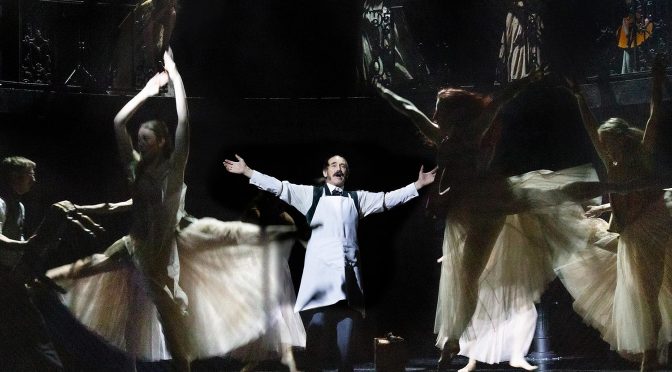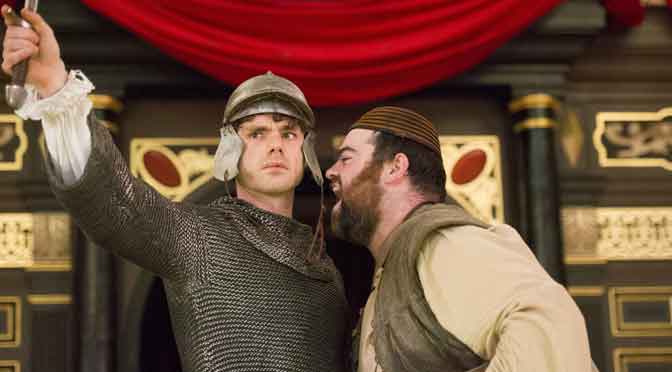Medical history is the subject of this new play written by Stephen Brown and Mark Rylance, the play’s star. While the story is important, it isn’t that dramatic – we’re in the realms of research, after all, conducting experiments the audience knows the outcome of. The many successful strategies employed by director Tom Morris to add emotion are impressive. But regrettably, none quite overcomes the poor script.
The titular 19th-century Viennese doctor was one of the first to speculate about contagion and propose cleanliness as essential through his work as an obstetrician. Brown and Rylance understandably focus on women’s health. Again important, but the script relies on the role of a midwife (for some reason Irish) that’s full of clichés. Pauline McLynn, who takes the part, has an awful lot to do; not just dealing with the sexism the character encounters, but providing too many pointers to the audience about how we’re supposed to be reacting. Meanwhile, the basics are lacking: the scene could be better set, especially since rejection by the establishment is a plot point. And there might be a little more background about the state of medicine to highlight Semmelweis’ achievement.
Rylance has written a mammoth role for himself – the delivery of which is sure to impress and has secured strong reviews. Semmelweis was a troubled character: brilliant and intolerant, he ended his life in a mental institution. Intelligently, the character fits well with Rylance’s performance style, which has plenty of admirers, but is often fraught. And much of the script is verbose and predictable, clunky and declaratory. Does the portrayal convince, or is it a matter of the energy Rylance undoubtedly brings to the role? I suspect the answer depends on how much of a fan of him you are.
Rylance does power the show. But the play’s other characters suffer as a result. There are strong performances as friends and colleagues from Ewan Black, Felix Hayes and Jude Owusu, but they are simply foils – and the latter’s death seems particularly wasted. The poor wife, who spends most of the first act asking why what we are all watching was kept a secret from her, means that Amanda Wilkin’s considerable talent is wasted. Perhaps the biggest missed opportunity is Semmelweis’ nemesis at the Vienna Hospital, Johann Klein. Alan Williams’ performance in the part is good – but the play would be better if the role weren’t such a straw man.
There’s an antidote to a lot of these problems, though. The use of dance, with choreography by Antonia Franceschi and music from Adrian Sutton, comes to the rescue. Both beautiful and frightening, the show’s movement brings out mortality and violence. A quartet accompanies the action on stage and the supporting cast of patients bring the focus on to the mothers that Semmelweis saved far more effectively than his many speeches.
Until 7 October 2023
Photos by


